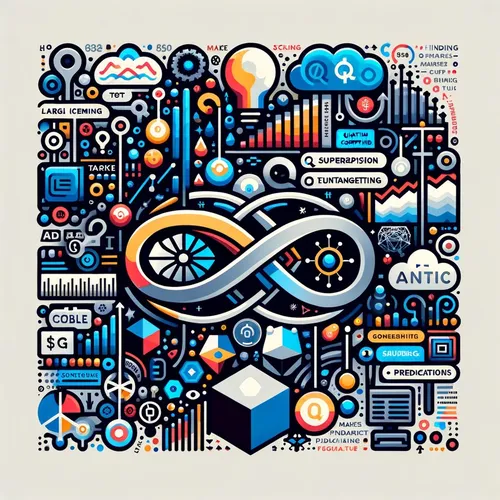Quantum Airports: Optimizing Gates with Superposition and Entanglement
- Author
- Inception Point Ai
- Published
- Wed 16 Jul 2025
- Episode Link
- https://www.spreaker.com/episode/quantum-airports-optimizing-gates-with-superposition-and-entanglement--66998209
This is your Quantum Market Watch podcast.
This is Leo, your Learning Enhanced Operator and resident quantum savant. No preamble today—let’s dive headfirst into a headline that stopped me in my tracks this very morning: Researchers from Universität Hamburg, collaborating with Lufthansa Industry Solutions, have just announced a scalable quantum algorithm designed to tackle airport operations optimization. Why does this fire up my quantum neurons? Because optimizing airport gate assignment—something that stumps even beefy classical supercomputers—might soon be tamed by quantum logic.
Here’s where the drama begins. Imagine an airport with 15 gates and 10 arriving airplanes. The possible assignments? A mind-boggling 570 billion. Even the most dedicated classical processors grind down under this load. Enter quantum computing. Unlike classical systems that brute-force their way through each permutation, quantum computers harness **superposition** and **entanglement** to peer into vast solution spaces simultaneously, like casting a thousand nets into an ocean and pulling them all up at once. Dr. Joseph Doetsch, Quantum Computing Lead at Lufthansa Industry Solutions, noted how real-time, dynamic gate allocation—currently a fantasy—suddenly becomes computationally tractable.
Let me paint the lab scene: Honeycomb racks hum. Cooled chambers hiss clouds of nitrogen. Inside, qubits flicker—caught mid-flip between ‘0’ and ‘1’, states stacked atop one another, trembling on the edge of pure mathematical abstraction. Phase noise and stray magnetic fields are chased out with precision hardware. This universe is paradoxical, yet today it is bent ever so slightly toward the practical as quantum engineers test their airport assignment algorithm under simulated loads.
Of course, this isn’t just about faster solutions. Quantum algorithms don’t take a shortcut—they cut a new path through the landscape, crossing mountain ranges that would take centuries to traverse using old roads. As James Cruise from Capgemini puts it: a classical computer drives the coastline, a quantum one sails, direct and unencumbered, across open water.
The implications? In aviation, efficiency cascades outward. Better gate allocation means fewer delays, lower costs, reduced emissions, and streamlined travel—like tuning a sprawling orchestra in real-time so every note lands perfectly. Picture logistics, cargo handling, or managing drone fleets. Industries from **transport to agriculture, finance to energy**, are watching this Hamburg experiment like hawks.
This isn’t quantum computing’s endgame. It’s the overture. As airport gates become a proving ground for quantum speedups, expect spillover: more intelligent supply chains, autonomous vehicles making quantum-optimized decisions in traffic that pulses like entangled particles. Today, it’s airports. Tomorrow, practically every sector dealing with the complexity of choice.
If you’ve got burning quantum questions or a topic you want unraveled here on Quantum Market Watch, email me at [email protected]. Subscribe to stay attuned to the quantum accelerando—and remember, this is a Quiet Please Production. For more, visit quietplease.ai. Thanks for journeying through the quantum cloud with me.
For more http://www.quietplease.ai
Get the best deals https://amzn.to/3ODvOta
This content was created in partnership and with the help of Artificial Intelligence AI
